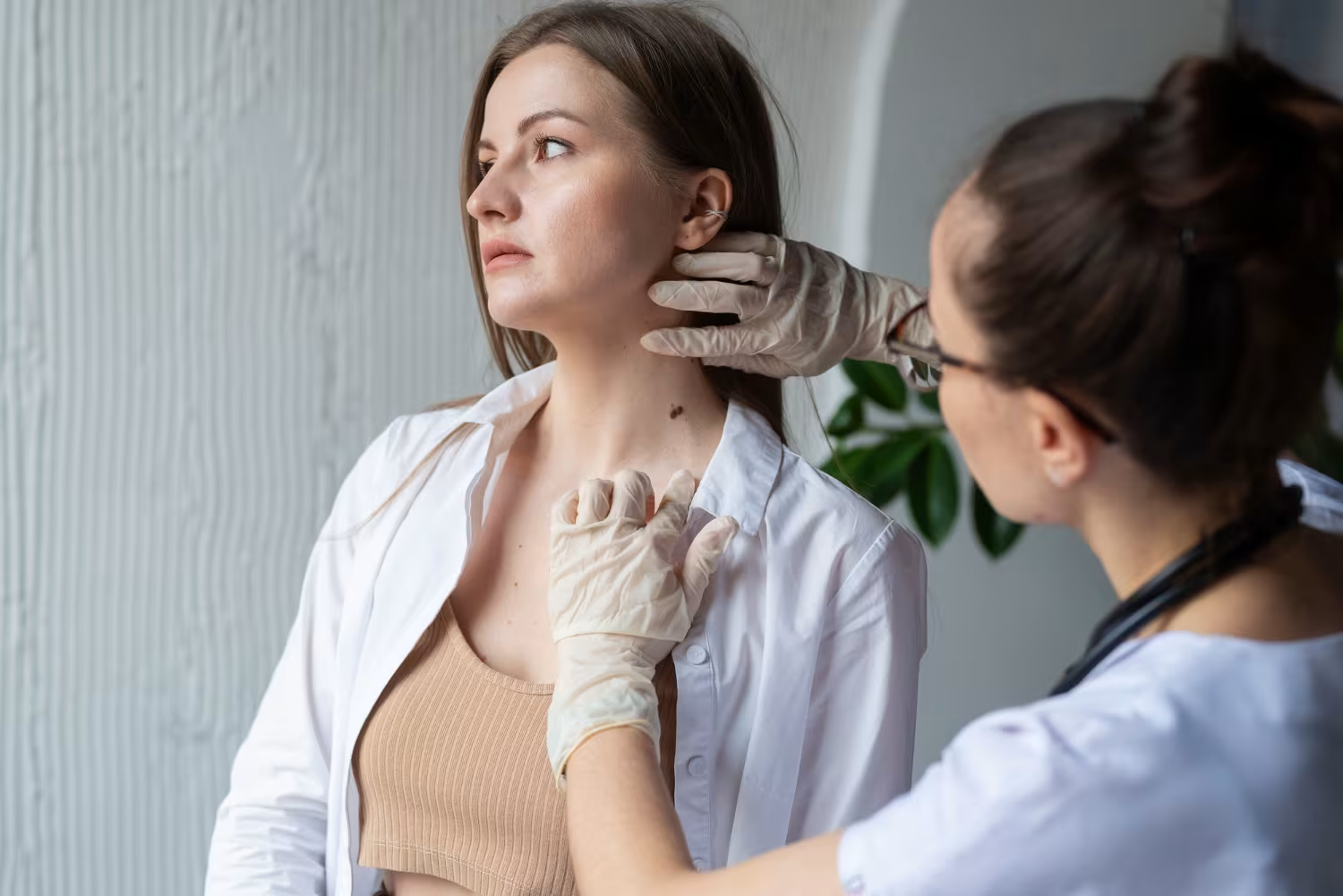
Herpes is a prevalent, yet often misunderstood condition with 50-80% of the population affected by Oral Herpes (HSV-1), and 1 in 6 people affected by Genital Herpes (HSV-2). Despite its common occurrence, navigating the complexities of Herpes diagnosis, treatment and management can be extremely difficult. We are here to offer a comprehensive guide, exploring everything you need to know about Herpes, including testing options, symptoms and available treatments. Removing the stigma and offering support to those affected.
The most common type of Herpes is HSV-1, causing Oral Herpes, which is characterised through cold sores around the mouth. While HSV-2 primarily is linked to Genital Herpes. Both types of simplexes are highly contagious and can be transmitted through skin-to-skin contact, including sexual activity and kissing.
Symptoms can vary depending on the type of virus and the location of the infection. It is important to note that your first Herpes outbreak is usually the most severe, symptoms lessen over time.
Symptoms often include:
Also with Genital Herpes you may experience discomfort or pain during urination, when an outbreak is occuring.
Diagnostic Tests, involves a combination of physical examination, symptom assessment, and laboratory tests. Polymerase Chain Reaction (PCR) tests, viral cultures and blood tests can accurately detect the presence of HSV antibodies in the body.
We offer FREE consultations where our private GP’s across our London Marylebone, Birmingham Edgbaston and Sutton Coldfield clinic locations, can evaluate and diagnose any concerns you may have, and advice on appropriate treatments.
At the Private Medical Clinic, we offer convenient and discreet options for getting tested, allowing individuals to undergo testing in a confidential environment. Our testing process involves collecting a sample of fluid from one of your blisters using a swab. The liquid is then tested on-site for HSV Simplexes. We also offer blood tests that can detect either HSV-1 or HSV-2. Additionally during the testing process we can screen for other sexually transmitted infections (STI’s) to ensure a comprehensive evaluation of your overall sexual health.
Additionally we offer same day appointments ensuring you prompt access to these services, rather than the long wait times you get from most sexual health walk-in clinics. Prompt diagnosis and access to treatment options enhance the effectiveness of Herpes management strategies, providing patients with timely relief and peace of mind.
It is important to know that Herpes is a manageable condition that requires proactive testing, prompt treatment and ongoing management to support optimal health. Let’s prioritise compassionate, evidence based care and empower everyone to navigate the complexities of Herpes with confidence and support.
Sexually Transmitted Infections (STIs) are infections spread through sexual contact, including vaginal, anal or oral intercourse. These infections can be caused by bacteria, viruses, or parasites, passed through intercourse with an infected partner. Common STIs include Chlamydia, Gonorrhea, Syphilis, Genital Herpes, Human Papillomavirus (HPV) and Trichomoniasis. STIs can present with a multitude of symptoms including genital discharge, genital itching or irritation, and flu-like symptoms. However, some STIs can be present with no symptoms at all, making regular testing and preventative measures imperative for early detection and treatment.
Untreated STIs can lead to serious health complications, including fertility, pelvic inflammatory disease (PID), certain cancers, and increased risk of HIV transmission. Practising safe sex, including consistent and correct condom use, and getting tested regularly are essential steps in preventing the spread of STIs and maintaining sexual health.
See a sexual health expert in a private setting at one of our Sexual Health Clinics. Our STI tests are a discreet and confidential way to check your symptoms.
Our Private GP’s can evaluate and diagnose any concerns you may have with sexual health and provide expert advice on appropriate treatments. Whether you are experiencing issues or seeking reassurance you can schedule an appointment directly at our STI clinic without a GP referral. In many cases, we offer same-day appointments for your convenience.
We offer next-day STI results, offering you peace of mind as quickly as possible. Our STI testing is discreet and confidential. Our tests involve a urine sample and blood test which is sent to an on-site laboratory for testing. Once you receive your results, our medical team will be able to provide further advice and recommend potential treatment.



.avif)

